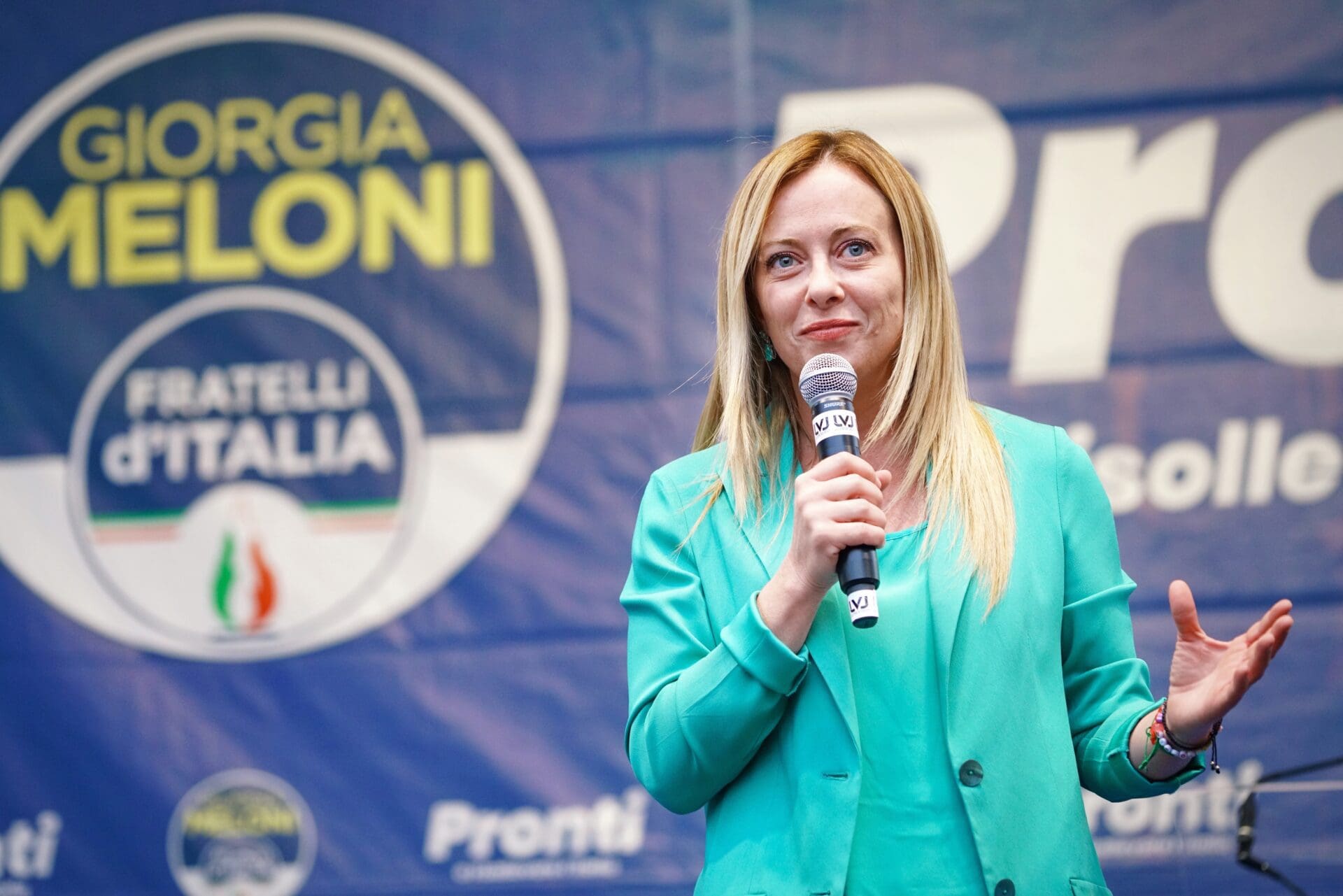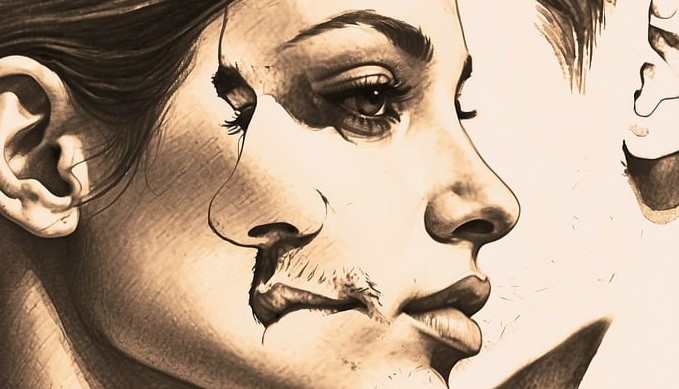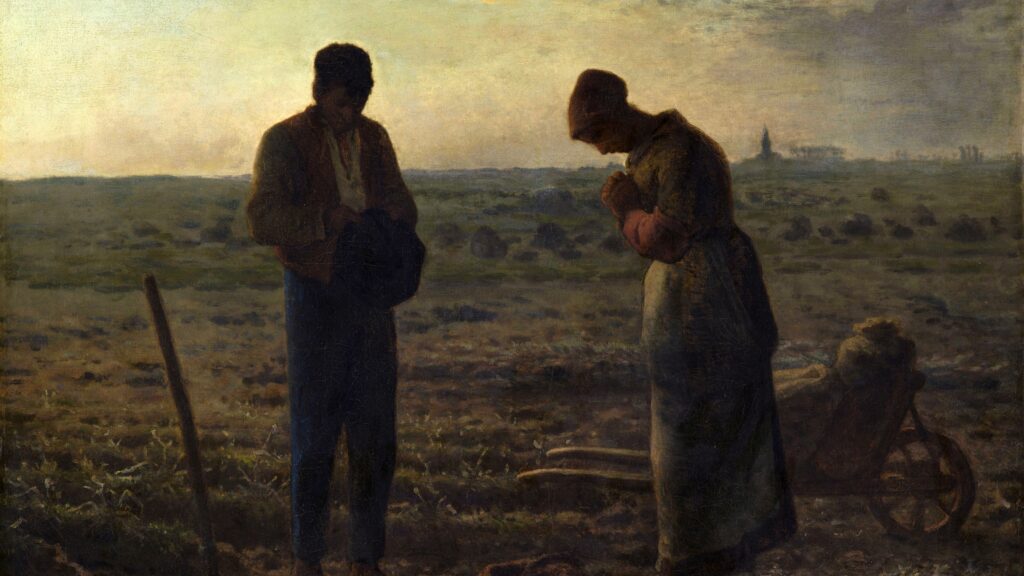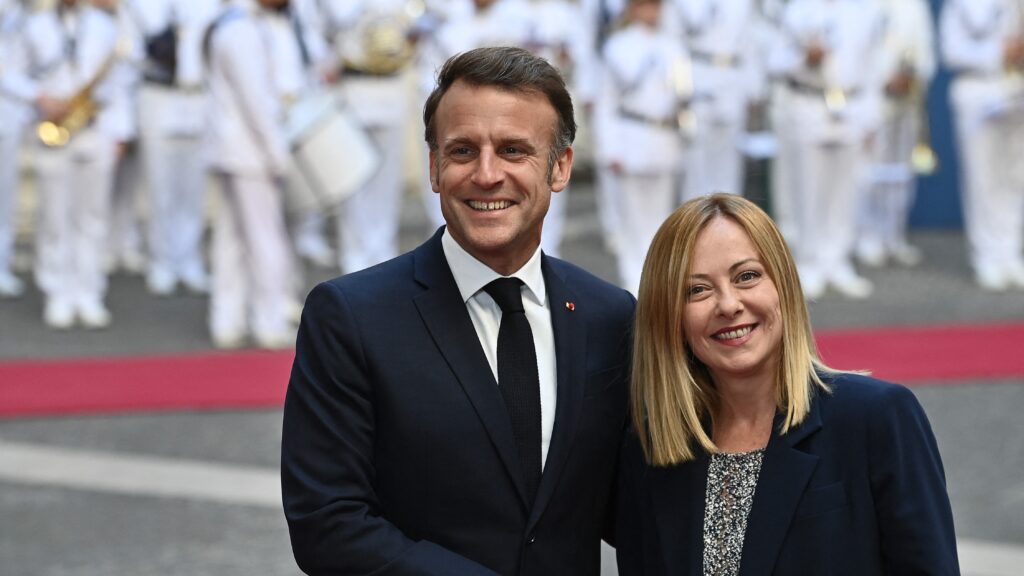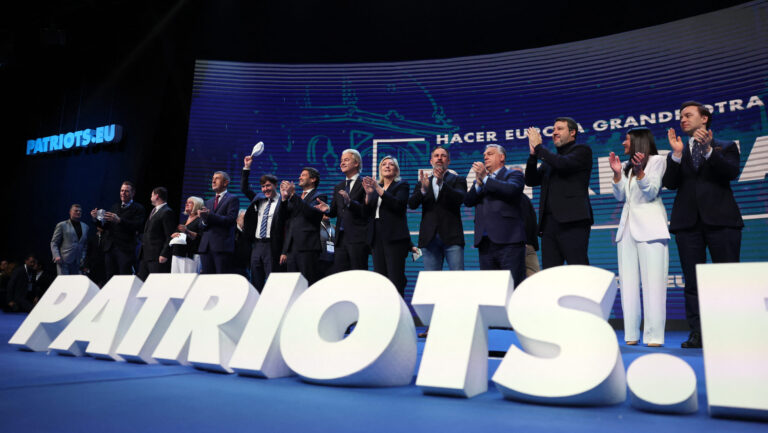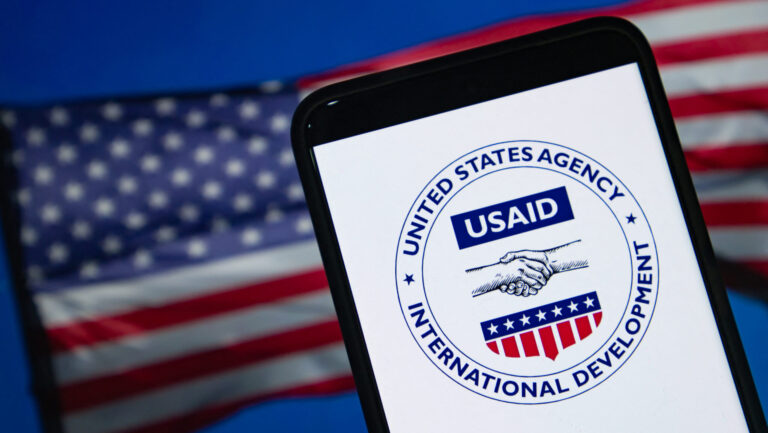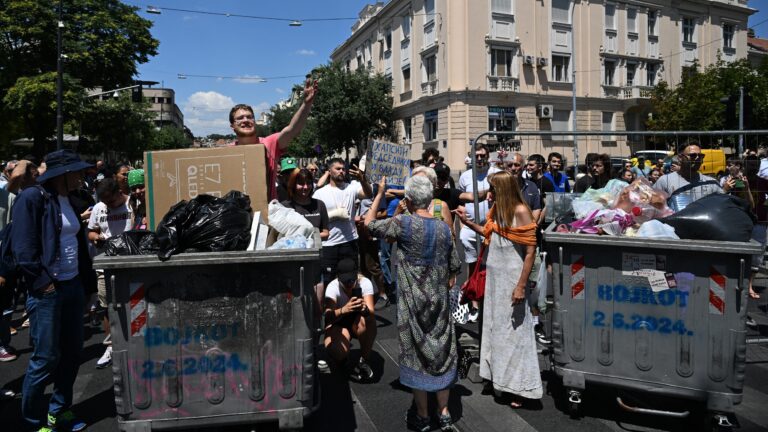After skimming through a dozen or so articles written about the electoral victory of Brothers of Italy (Fratelli d’Italia, FdI) last Sunday, I couldn’t help but notice a recurring pattern. Many—in fact, most—of the largest media outlets called the party and its leader ‘fascist’ or ‘neo-fascist’, while providing little to no reasoning for the use of the word. This is not really surprising: to quote the words of Professor Richard Griffiths, ‘fascism is the most misused, and overused word, of our times.’ However, precisely because of the party’s bad reputation only a handful of governments and political parties congratulated the soon-to-be prime minister, Giorgia Meloni, while the rest of the continent was busy acting worried and offended by the ‘return of fascism’ to Italy. Carelessly throwing around big words is not exactly quality journalism. So let us instead get to the bottom of these allegations and see what the truth is.
Who is Giorgia Meloni?
Meloni could have easily been the newest champion of the left for simply becoming Italy’s first female prime minister, but we know that right-wing politicians don’t count when we’re celebrating these ‘firsts’. Nonetheless, her party won the elections with 26 per cent of the popular vote. Together with her coalition partners, Salvini’s Lega and Berlusconi’s Forza Italia, the bloc earned almost 44 per cent, which translates to 237 out of 400 parliamentary seats. In other words, a clear path toward forming a stable government at last, which is referred to as the most right-wing one since the end of the Second World War.
Judging by her road to premiership, Meloni is no different from all the other career politicians of Europe. She joined the youth organization of the Italian Social Movement (MSI) in 1992, then went on to become an important member of the National Alliance (AN) party, MSI’s legal successor. She served as minister of youth in the fourth Berlusconi cabinet between 2008 and 2011. A year later, she co-founded her current party, Brothers of Italy, and assumed its presidency in 2014. FdI grew steadily in popularity under her leadership, especially during the recent Draghi cabinet, when it was the only opposition party in the entire parliament. She’s regularly described as far-right, even though she rejects the label; instead she insists on identifying as a national-conservative, patriotic, Christian politician. She has expressed strong natalist views, with the nuclear family in its centre, while firmly opposing multiculturalism and mass immigration. Judging by this, her party’s ideological stance is most similar to Hungary’s Fidesz and Poland’s Law and Justice, both of which are nationalist but centre-right people’s parties with enormous public support.
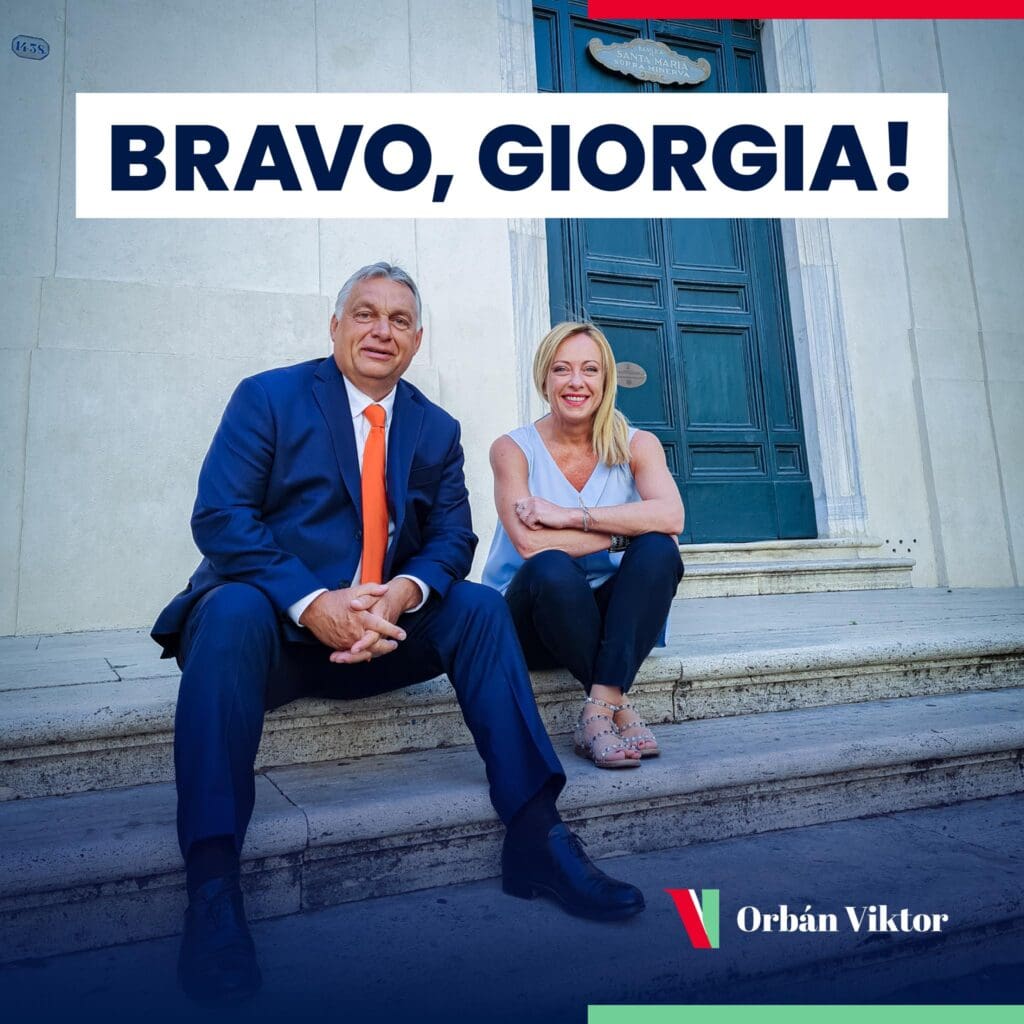
Why is Meloni Called Neo-Fascist?
Giorgia Meloni and Fratelli d’Italia have been repeatedly called fascists in the past, and to be fair, both have certain connections to Europe’s first totalitarian movement. Back in 1996, 19-year-old Meloni said in an interview that Mussolini was ‘a good politician’, unmatched in the previous 50 years, a sentence that has been frequently quoted since she took the lead in the polls.
The biggest problem, however, is with her party’s troubled past: Brothers of Italy is the direct successor of the National Alliance and its predecessor, the Italian Social Movement, which was founded by ex-fascists after the end of the war. FdI’s current logo still features MSI’s famous tricolour flame, so the party’s connection to a darker history is undeniable. What’s more, the members of FdI include two of Mussolini’s direct descendants, while others recently came under fire for telling fascist jokes or performing roman salutes, signalling that the dictator still holds a certain amount of support within the ranks of Brothers of Italy.
What is the Party’s Official Response?
In that context, it is no surprise that Brothers of Italy works hard to distance itself from the fascist past. Last year, for instance, Meloni said in an interview that there was ‘no room for those nostalgic for fascism’ in her party, and she did indeed mean it. Members who get into any kind of controversy related to the fascist movement (such as a Sicilian candidate who reportedly praised Hitler on Facebook) can expect to be suspended immediately.
The party also has a long record of strongly opposing any non-democratically elected leaders—from Monti to Draghi—which culminated in FdI rejecting to enter the latter’s grand coalition. According to Raffaele Fitto, a Brothers MEP, his party remained the sole opposition force because for them ‘the principle is democracy, that the people choose. So when they accuse us of fascism, extremism, we can only respond with a laugh, because our actions and choices are exactly the opposite.’
‘The Italian right has handed fascism over to history for decades now’
Just weeks before the election, Giorgia Meloni sent out a video message to international news agencies which aimed to clear up exactly these questions once more, since the foreign press started to overflow with articles about a looming fascist victory. In her video, Meloni emphasised that ‘The Italian right has handed fascism over to history for decades now, unambiguously condemning the suppression of democracy and the ignominious anti-Jewish laws.’ Fratelli d’Italia, instead, is ‘a bastion of freedom and of the defence of Western values.’ According to the party leader, FdI is most similar to the British Tories, the US Republicans and Israel’s Likud.
Yes, as a lifelong outspoken supporter of Zionism, Meloni is among Likud’s most important international allies, but she maintains close ties with Hungary’s Fidesz, Poland’s PiS and the Spanish Vox as well. She is sovereigntist when it comes to the European Union (but she is not a Eurosceptic, unlike her coalition partner and former deputy PM, Matteo Salvini), and fiercely Atlanticist in regard to European security and opposing Russia.
So, Is Fratelli d’Italia Fascist?
It seems like that Giorgia Meloni’s party is being called fascist simply based on its institutional ancestry, going back to MSI and Mussolini. But that’s hardly enough to actually prove that a totalitarian turn is about to ensue in Italy. In fact, with this logic alone, the Democrats in the US should still be regarded as the pro-slavery party, shouldn’t they? Parties can change over time. But to see whether FdI has, we need to ask what fascism even was in the first place.
The historian Ian Kershaw famously said that ‘trying to define fascism is like trying to nail jelly to the wall.’ That is because most fascist movements lacked true, clearcut principles, used vague, contradictory arguments, and whatever their ideology was, it was made subject to their ultimate goal, total control. Although hard to define, most people agree that fascism is far-right, ultranationalist authoritarianism, further characterised by dictatorial power, militarism, the use of violence, abuse and suppression of democratic institutions, social and economic control, as well as harsh punishment of dissent and non-existent freedom of speech.
Just from this, it should be obvious that it’s not really possible for anyone to build up a truly fascist or neo-fascist system in contemporary Europe. Today’s political and international frameworks simply do not give any party enough time and space to become a force like Mussolini and the fascist parties were. A hundred years ago, Mussolini’s guardsmen marched from town to town and violently beat up any politicians and their supporters who belonged to their opposition, until their intimidation campaign yielded Il Duce the parliament and he could begin eroding democracy itself.
As opposed to that, Brothers of Italy won the elections by opposing undemocratic practices (the formation of the Draghi cabinet), by arguing for self-determination at the EU level, and by defending freedom of speech and conscience. It is true that we don’t know what a Meloni government will look like a year from now, but so far, it seems like the exact opposite of a fascist takeover has taken place.
Edmund Burke clearly defines who we need to work for to maintain a healthy and sustainable society
What about nationalism, natalism and anti-immigration? These are simply conservative values, which are part of many other parties’ agenda across Europe. Brothers of Italy believes that the solution to the demographic crisis does not lie in mass migration, but in natalist policies that help families and encourage people to have more children. This is based not on Mussolini, but rather, I’d say, Edmund Burke, who’s idea of the intergenerational ‘social contract’ clearly defines who we need to work for to maintain a healthy and sustainable society. Just because this idea is a conservative one, it doesn’t mean it was rooted in fascism. In fact, the stronger FdI’s principles are, the bigger the distance between them and Mussolini: a vague and constantly changing ideology is hard to call to account, while it is much easier to do so in the case of a crystallised set of values and principles.
It goes without saying that ultimately a tree is known by its fruit: it will be the actions of the Meloni government to truly define its worth. For the moment, Italians seem to be eager for a change and have given FdI unprecedented trust compared to recent years, which comes with enormous responsibility as well. Without results, FdI will dwindle into nothingness just like its predecessors. But if the Brothers prove themselves to be worthy leaders in the challenging times ahead, then they have not only scored an important European victory for conservatism, but they will finally have a chance to wash the filth of fascism off their green, white and red banner.

